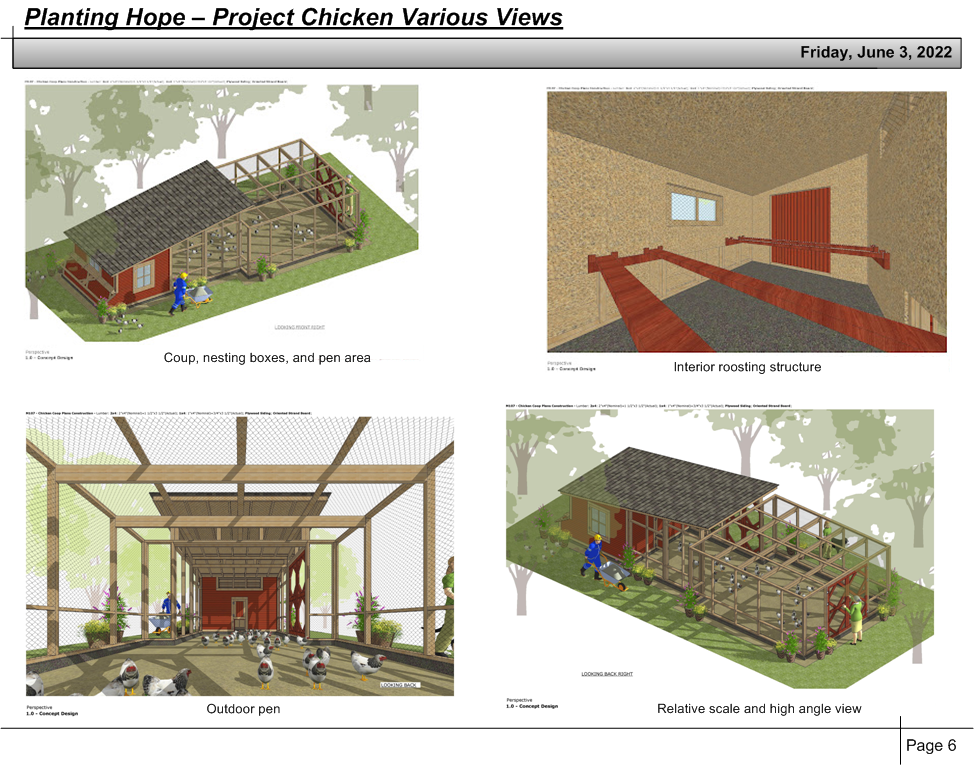Project Chicken

Planting Hope Inc’s ultimate goal has always been to develop a self-sustaining and income-producing mission in northern Haiti. We are motivated by our love for God. Our work benefits Hatian brothers and sisters as we share God’s love and plans for mankind, even as we too have been blessed.
We work in the community of Dumus in north central Haiti. We care for 9 orphaned children and work with the community there to provide basic needs – clean water, education, and Christian leadership by example. Our goal is to develop an agriculturally based project suited to the conditions, skills, and resources of the local population. In parallel with our spiritual goals, our agricultural project aims to address practical needs, providing much needed food and employment.
Located on our property in Dumas, Haiti, Planting Hope’s Project Chicken seeks to develop a self-sustaining commercial chicken farm for meat and eggs. The end goal is to provide employment and nutrition in the community there.
A chicken farm has the following positive advantages:
- It is not land intensive. Planting Hope’s current acreage can easily support multiple chicken coups and several hundred birds;
- It is not overly capital intensive. The project requires only simple structures, fencing, and minimal infrastructure and can expand incrementally with success;
- It can function without access to the electrical grid, which does not reach Dumas;
- It can grow incrementally over a relatively short time as resources develop. The poultry farm can start small and grow flocks and related resources as demand and income grows;
- Contributing to much needed nutrition, eggs and meat are also easily sold in nearby markets;
- There is no long term requirement for expensive machinery, refrigeration, fuel, or capital.
During the first phase, we are working on the following challenges;
- Develop and install a functional solar incubation system necessary (no local electrical grid) to grow our flocks and provide new stock for laying hens and meat hens;
- Construction of the first coup that will house approximately 35-45 adult chickens. This serve as a model for additional enclosures and incremental growth;
- Develop a training program including the care of the flocks, best business practices, and Christian stewardship for all involved;
- To provide productive age-appropriate work for our children being cared for in Hope House;
- To develop local markets for the sale of eggs and meat.